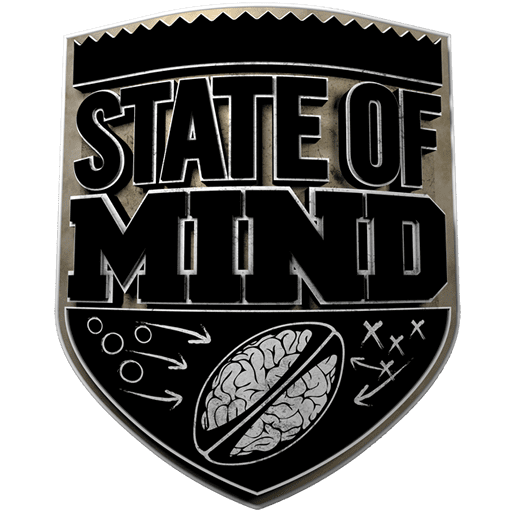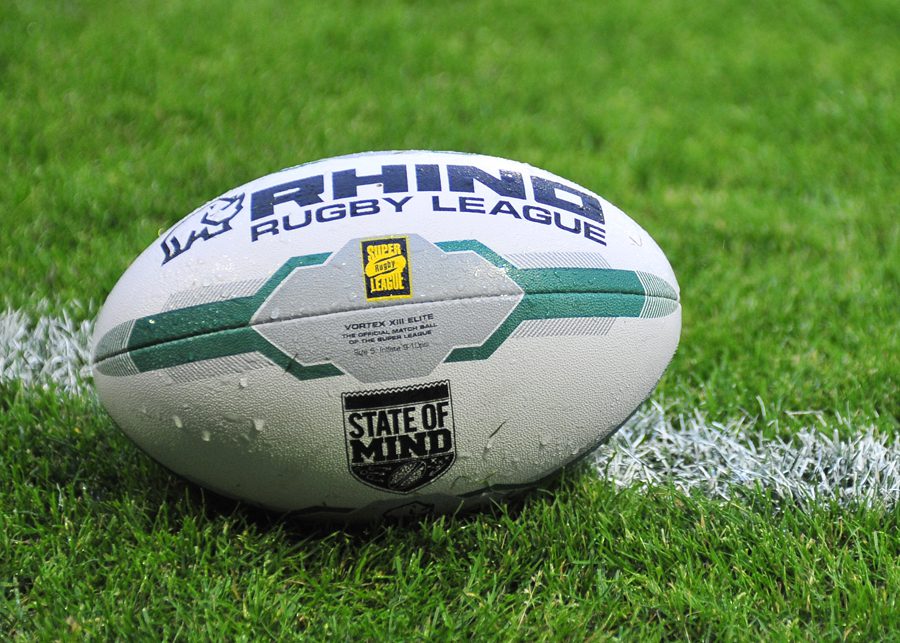It is October 2011 and 15-year-old George Green is travelling to London for a trial with Tottenham Hotspur when a phone call changes everything. Everton have agreed a £2m deal with Bradford City for the schoolboy midfielder.
Green signs a two-and-a-half-year contract, receives a £45,000 signing-on fee in three instalments of £15,000, and a promising future with the Toffees beckons for the Dewsbury teenager.

Four years later he is planning to take his own life, Green’s hopes of making it as a Premier League player ruined by cocaine and alcohol.
“I was in that much debt, I thought I’d lost my partner because of my drug use, and I didn’t see a way back for me with football,” the 22-year-old told BBC Sport.
Now at sixth-tier Chester, who beat City of Liverpool 4-0 in the FA Cup second qualifying round on Saturday, Green opens up about having too much too soon, self-destruction, depression and how he is attempting to rebuild his life.
“Mental health and addiction is an everyday battle. I’m giving it my best shot,” he says. “If others can learn from it, I’d rather help.”
‘A £2,000-a-month cocaine addiction’
It was Everton Under-21s boss David Unsworth who broke the news to a tearful Green, then aged 19, he was no longer required after a loan at League Two Tranmere Rovers in 2015.
He had arrived at Goodison Park a fresh-faced schoolboy and was quickly compared to Wayne Rooney, who made his senior debut for the club aged 16.
Green left without playing a first-team game having spent five weeks of his four years at Goodison Park in London’s Priory hospital, which provides a range of mental health and addictions treatments.
“Everton paid for it all, I think it was about £5,000-a-week,” said Green, who was playing in the Toffees’ U21 side by the age of 16 alongside future England internationals John Stones and Ross Barkley.
“Before I turned 18 you wouldn’t catch me out at night. As soon as I was 18 it was like a new world opened up. I was drinking, doing drugs and playing football.
“The first time I took drugs I’d gone to watch football in a pub with mates. I was offered cocaine and it changed my life.”
At first Green was able to hide his habit from the likes of Kevin Sheedy, his youth-team coach, but before long he was taking 30 grams a month and life was spiralling out of control.
“I was spending way over £2,000 a month. I remember one particular Monday morning I was supposed to be training. I didn’t wake up until the afternoon.
“The night before I’d gone to a friend’s house for drink and drugs. I think that’s when alarm bells started ringing at Everton.
“I remember phoning a welfare officer at Everton one night. I was crying and said ‘I need help’. Soon after I was admitted to the Priory.”
‘I’ve earned £500,000 – I’ve got an iPad to show for it’
Having joined Everton as a £150-a-week schoolboy, Green’s earnings reached £110,000-a-year at the Premier League club.
Since leaving three years ago, he has also had spells with Burnley and Oldham Athletic – as well as Viking in Norway’s top flight under Englishman Ian Burchnall, now boss at Swedish side Ostersunds.
Green, who has also featured in the Scottish Premiership for Kilmarnock, believes he has earned at least £500,000 playing football.
“I have an iPad to show for it. That’s how much of a downfall my life has become because of drugs,” he added.
“Earning the money I was, I thought it was never going to end.
“Everybody wanted to know who I was and I was enjoying life. But I never got introduced to people who would keep me on the straight and narrow. They drank or did drugs and I fell into that circle.
“I got a brand new Mercedes-Benz A-Class and did about £4,000 damage to it. That stemmed from drink-driving. I was ridiculous, I used to drink-drive everywhere.”
Green had four clubs within 14 months of leaving Everton. Soon after his release from the Toffees, he joined League One Oldham on a two-year deal. He lasted five months before his contract was cancelled by mutual consent in November 2015.
“It was due to drink and drugs, I’d fallen out of love with the game and decided I didn’t want to play any more.”
By now, Green was on a downward spiral. He had a drink-driving conviction and, after blowing much of his earnings on alcohol and cocaine, he was struggling financially. In addition, he was suffering from depression.
He did not stay away from football for long.
A week after leaving Oldham, Green had signed for non-league Yorkshire side Ossett Albion for £80-a-game. He had gone from Everton to the eighth tier of English football in less than six months.
It was around this time he first contemplated suicide.
Green’s mental health problems continued. He took an overdose after joining Salford City on loan from Burnley in early 2017.
“I wanted to die at that time,” he added.
Former Manchester United defender Gary Neville, Salford’s co-owner, offered his support. Green said: “I was invited round to his house. I had been in hospital for taking too many tablets. We spoke for an hour about football and things Salford could do to help me.”
Five months clean and a baby on the way. He lives near Dewsbury with his two-year-old daughter Daisy and fiancee, Charli, while the couple are due to welcome a baby boy to the family in October.
Gone are the flash cars and the hangers-on who formed part of his life when he was at Everton.
Instead of a Mercedes-Benz A-Class, Green now drives a Kia Rio to and from Chester, the club he joined in July from National League North rivals Nuneaton.
Money is tight but the player blames no-one but himself.
Green is rebuilding his life with fiancee Charli and two-year-old daughter Daisy
He relapsed in April but says he has not touched drink or drugs since, and attends weekly Alcoholics Anonymous and Cocaine Anonymous meetings.

